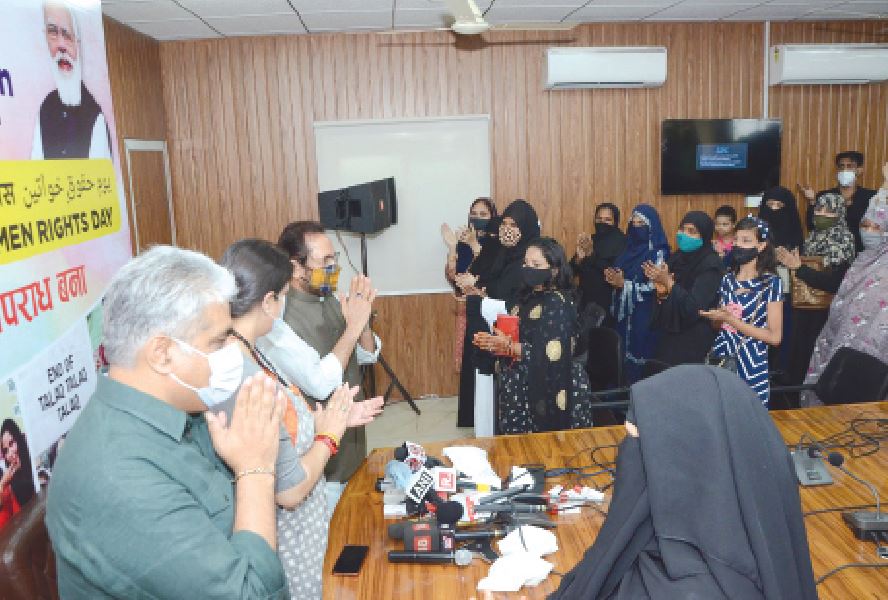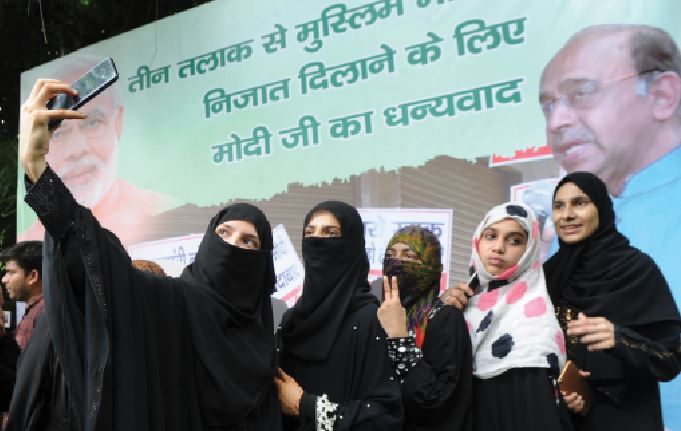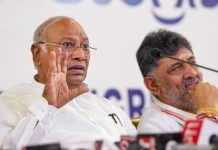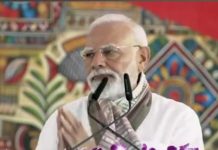
The community rejects all attempts of fake appeasement, including marking days on a calendar to ‘celebrate’ its rights that the government is consistently, systematically and methodically trying to dilute
It is a Damned if you do and damned if you don’t kind of a situation the BJP government finds itself in. Clearly on the backfoot on issues like Pegasus, the oxygen crisis, farmers’ protest and price rise, the government has to work doubly hard to convince the people that Prime Minister Narendra Modi’s slogans go beyond words.
As of now, his slogan of achche din has become some kind of a joke with critics and the Opposition questioning the government on the when and if of good days: in other words, if they would ever happen.
A take from a popular Hindi film song “Koi lauta de mere beete hue din….” or return the bygone days, was doing the rounds to hammer the point that the days prior to the achche din promise were far better than the dream Prime Minister Narendra Modi sold to the electorate way back in 2014.
Nevertheless, the latest from the never say die Modi government stable is yet another: this time aimed at Muslim women.
The Ministry of Minority Affairs announced that it would observe a “Muslim Women Rights Day” across the country on August 1. This, it stated, was to mark the second anniversary of the enactment of the law banning triple talaq.
Triple talaq is a practice under which a Muslim man can divorce his wife by simply uttering “talaq” three times.
Common among India’s Muslim community majority of who follow Hannifi Islamic school of thought, the practice is not universal. Some other Islamic schools of thought prefer the divorce process to be deferred, in many cases over a period of three months.
It may be recalled that instant divorce was classified as a criminal offence by the Indian government on August 1,2019 through a law. Any Muslim pronouncing such a talaq to his wife could be liable for imprisonment.
In August 2017, the apex Court had struck down the practice of instant triple talaq as unconstitutional. This followed the Centre bringing a Bill in Parliament to make this a law.
Even though the law was hailed as progressive by most, in some quarters it was seen as a tool to target the men in the community and misusing its provisions to throw them in jail.
None other than Congress leader Ghulam Nabi Azad had said that it “demonizes Muslim men” or as some activists have said “show the Muslim men their place in a new India”.
A year later, a Kerala lawyer moved the apex court against the law the Modi government had been showcasing.
On July 6, 2020 Noorbeena Rasheed challenged the law on grounds that protection of women cannot be achieved by incarceration of husbands”. However, what is pertinent is Rasheed’s petition stating that the intent behind the Act is not abolition of the practice of triple talaq but “punishment of Muslim husbands”.
Two years on, the govt is in celebration mode heralding a Muslim Women Rights Day: its way of reminding the nation that it was the BJP government that enacted the law against triple talaq.
If the Ministry document is anything to go by, August 1 2021, was marked on the calendar as the second anniversary of the enactment of the law against triple talaq.
And it was not Minority Affairs Minister Mukhtar Abbas Naqvi who was the sole champion. He had others for company: his colleagues Smriti Irani and Bhupender Yadav.
Somewhat coining a new phrase “decision delivery” Naqvi said that historic steps were taken by the BJP government that included doing away with “Mahram”.
Rewind to 2017 when in his radio talk Prime Minister Modi had claimed that his government had removed the requirement of a male accompanying Muslim women going to Haj.
In Islamic law, a mahram is a male relative whom a woman is permanently forbidden to marry.Even as the BJP jumped to take credit, it turned out that this had more to do with the Saudi government than Modi, given that the traditional Saudi position was that only women accompanied by a mahram would be granted a visa for performing Haj. The Saudis, reportedly, relaxed this rule and permitted women over the age of 45 to perform Haj without mahrams with a few provisions. This also extended to Indian Muslim women except those going through the Haj Committee which had failed to bring its procedures in line with the Saudi rules.
In fact author and historian Rana Safvi had then tweeted that credit for letting women travel alone for Haj belongs to Saudi Arabia, and not the Indian government.
She was not the only one. There were others including the Opposition parties that said that Modi was taking credit for relaxation of norms which had actually come from the government of Saudi Arabia.
Therefore even while Naqvi can claim credit for the government he represents, it can only be a ‘half-share’.Cut to the Muslim Women’s Rights Day and it is a replay: a desperate attempt to take credit when little exists.
Even while Naqvi chose to describe the day as “a golden moment”, many are questioning the need and necessity of such a celebration.
For starters, they are pinpointing its communal overtone and the attempt to segregate Muslim women from the others: “Would the Modi govt only celebrate Muslim Women (Rights) Day? What about the empowerment of Hindu, Dalit and OBC women?” asked prominent Muslim leader and MP Asaduddin Owaisi.
Meanwhile the All India Muslim Personal Law Board (AIMBPL), said that the announcement is akin to the government “committing burglary after theft, given that this law has increased the problems of Muslim women”.
Even while Modi loyalists dismiss this, there is no denying that Muslim women, too, have slammed the government.
Several activists have questioned the government’s failure to take action against the hate crimes perpetuated against Muslim women by Hindutva brigade as also its silence on Sulli deals. Sulli, it may be mentioned here, is a derogatory term used for Muslim women.
Photographs of Muslim women, including students, activists and journalists, were uploaded on an app called “Sulli deals”.
Done without their knowledge, these women were put up for “auction” in the offending app. The community has alleged that it is “Hindu men targeting Muslim women”. Except for registering FIRs against unknown persons, the Police have done little admitting that they have “hit a roadblock”.
Against this backdrop, the government’s claim of empowering Muslim women sounds hollow, to say the least.

Also, there is palpable anger against the government for creating a hostile environment for Muslims in India; making them insecure and reducing them to second class citizens. Add to this, hundreds of Muslims, many among them women, who faced atrocities in communal riots in UP and 2002 Gujarat pogrom, are still awaiting justice.
In the face of this, the government lauding Muslim women and emerging as a champion of their rights is seen as, what many dubbed, a “meaningless gesture”. Others rejected it on grounds of it being “cynical optics of using Muslim women’s rights, in the face of an unprecedented onslaught against the rights of the Muslims in recent years under the present government” adding that a celebration seeks only to disparage the Muslim community.
“How dare you?” is what a statement signed by 600-plus activists sought to ask the government. These include Teesta Setalvad, Subhashini Ali, Kanpur Shabnam Hashmi, Zoya Hasan and Syeda Hameed among others.
The government is on a sticky wicket. Even while it wants to showcase itself as being one to reach out to the Muslims, it faces a trust deficit among the community.
While it is no one’s case to dilute its effort to ban triple talaq, hailed by many, it is a fact that the gap between the Muslims and BJP is difficult to fill.
Equally, the government would do well to end tokenism of celebrating days marking Muslims especially women, because it smacks of hypocrisy and tends to scrape festering wounds.
For a hard-line Hindutva party that the BJP is, an image make-over is unconvincing and akin to being a “wolf in sheep’s clothing” to say the least.
If it really intends to do something, it needs to work silently and not flag its pro-Muslim, pro- women initiatives.
This is because whatever the government may do, it will find it difficult to win over the Muslims who are deeply suspicious of its intent and with good reason because apart from the BJP, Prime Minister Narendra Modi too is in the eye of a storm.
The Muslims can never forget 2002 when the riots took place in Gujrat when he was Chief Minister. Even if one were not to go as far as assuming that he engineered them, his failure to control them, if not look the other way, is something the Muslims will not easily forgive.
Therefore when his ministers laud pro-Muslim initiatives, their moves are not only suspect but also seen as publicity gimmicks with the sole purpose of projecting quite the opposite of what is intended.
If Muslims are to be believed, every move of the government to project a “benefit” for the community is seen as condescending from a government that prides itself on being pro-Hindu.
Having said that, it must also be accepted that the Muslims are seething with rage at the covert attempts by this government to side-line, marginalize and ultimately “drive them out” from a land that they have treated as their own for generations.
It is in this context that the three words or the how dare you, assume significance. It demonstrates the grit of the Muslim community to stand up to the government, fight it out and reject all attempts of fake appeasement including marking days on a calendar to “celebrate” their rights that the government is consistently, systematically and methodically trying to dilute.
tehelkaletters@gmail.com













